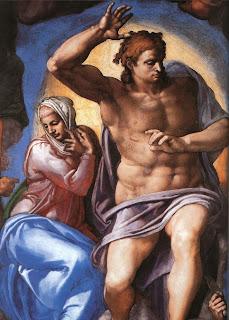Would the world have been better without Scrooge? Did he force people to do business with him? Was Bob Cratchit not free to find better employment elsewhere? And if no such employment was available, was that Scrooge’s fault? Scrooge’s “conversion” is also problematic. Once Marley’s spectre has shown Scrooge what the afterlife looks like for the uncharitable, is there any need for the three Christmas ghosts? Scrooge has been “scared good” the old Christian way. With fear of eternal damnation.
The author is at pains in the essay to help the reader achieve, dare we say it, a more charitable view of capitalism than these productions usually afford, the 2009 Disney production starring Jim Carrey in sympathy with and perfectly timed for, it would seem, that odd thing, the wealth re-distributionist 44th president. Foster points out, quite rightly, how there has been a strong tendency in all quarters and evident for a long time, to encourage us to bite the invisible hand that feeds our society. And in this Mr. Foster surely is correct.
But if this tendency often expresses itself in caricatures of the reality in films, it is to miss the point entirely to conclude that Scrooge was simply "scared good." If Mr. Foster had taken the time to re-familiarize himself with Dickens' story, it is not evident from that remark. The ghosts were not superfluous because Dickens was anything but a proponent of some stern form of Christian fundamentalism any more than he was of the revolution of the proletariat.
On the contrary, we should consider that the ghosts sent to Scrooge revealed to him many important truths which speak to the mysteries and wonders of life beyond the superficialities of mere production and consumption with which both Marxism and now capitalism concern themselves in a world flattened by the dismal science of economics. And it is this flat view of life which animates Mr. Foster no less than it does his anti-business bogeymen.
At least the economists of the past paid back-handed compliments to the more real, multi-dimensional world we all used to inhabit, where "markets can remain irrational longer than you can remain solvent" and "in the long run, we're all dead." As Dickens reminds us in the beginning of his story, at Christmas we open our shut-up hearts freely and think of people as "fellow-passengers to the grave," into which no new 3D film technology from Disney will scarcely be able to take us.
No, Dickens is more a proponent of the methods of Socrates than of some wild-eyed hellfire and damnation preacher. Scrooge lives the unexamined life, which to Socrates is a life not worth living. Wedded to a Christian conception of reality in which the grace of God trumps all, it is Divine Providence which sends the spirits who help awaken Scrooge to life's examination and explanation, showing him the meaning behind the "shadows of the things that have been, that are, and are yet to come."
A thoughtful, educated person would instantly be reminded of the shadows constantly beheld by the cave-dwellers in Plato's allegory in Book X of The Republic, whom the philosopher comes down from the mountain to release, fixed in their seats facing the darkness, unable to see behind themselves. He comes to loosen their chains, which stand for Ignorance, that they may turn and see the objects on which the Light shines, creating the shadows their eyes mistook for the true things.
These Socratic ghosts show Scrooge that he once thought his own life had been truly worth living;
that he was actually happy once, open to the world and other-directed;
that love was real and precious;
that people could mean it when they repented of their mistakes;
that they could change for the better;
that each life has the potential to mean something positive to every one around it;
that people exist who are quite happy without money;
that if individuals mattered to God they should matter to him;
that we must pay homage to ordered liberty, be thankful and toast the founder of our feast, whatever else others may think of him;
that choosing justice for its own sake is as indispensable for the conduct of his own business as for the conduct of the business of life.
"Mankind was my business!" shrieked the ghost of Marley.
And it is ours.










.jpg)


